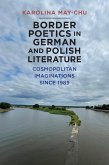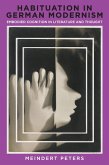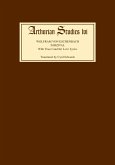Shows, contrary to the traditional view, that the major authors of German literary realism not only thematized environmental transformation but that it was central to their aesthetics.
In nineteenth-century Europe, and particularly in Germany, the industrial revolution led to air and water pollution, urban and industrial sprawl, and the physical reconstitution of natural landscapes. This book investigates the relationship between environmental degradation and German Realist aesthetics, challenging a longstanding argument in the scholarship that German Realism largely occluded urban and industrial realities by demonstrating that its major authors-Adalbert Stifter, Wilhelm Raabe, Theodor Storm, and Theodor Fontane-not only thematized environmental matters, but that environmental transformation became the very condition for their texts' reflections on the aesthetic representation of reality.
German Realist aesthetics in this sense are thus inseparable from environmental aesthetics. Environmental aesthetics, in turn, are inseparable from environmental politics, connected as they are to problems such as the loss of individual livelihoods, displacement of communities, and the legal and ethical standing of animals, plants and landscapes. By exploring how these problems appear in the fiction of the period, Alexander Phillips's book situates the literature in a longer genealogy of environmentalism and ecological aesthetics beyond Germany. That genealogy includes the early twentieth-century "Nature Fakers" debate in the United States, twentieth-century nature writing and contemporary ecocritical theory.
In nineteenth-century Europe, and particularly in Germany, the industrial revolution led to air and water pollution, urban and industrial sprawl, and the physical reconstitution of natural landscapes. This book investigates the relationship between environmental degradation and German Realist aesthetics, challenging a longstanding argument in the scholarship that German Realism largely occluded urban and industrial realities by demonstrating that its major authors-Adalbert Stifter, Wilhelm Raabe, Theodor Storm, and Theodor Fontane-not only thematized environmental matters, but that environmental transformation became the very condition for their texts' reflections on the aesthetic representation of reality.
German Realist aesthetics in this sense are thus inseparable from environmental aesthetics. Environmental aesthetics, in turn, are inseparable from environmental politics, connected as they are to problems such as the loss of individual livelihoods, displacement of communities, and the legal and ethical standing of animals, plants and landscapes. By exploring how these problems appear in the fiction of the period, Alexander Phillips's book situates the literature in a longer genealogy of environmentalism and ecological aesthetics beyond Germany. That genealogy includes the early twentieth-century "Nature Fakers" debate in the United States, twentieth-century nature writing and contemporary ecocritical theory.
Dieser Download kann aus rechtlichen Gründen nur mit Rechnungsadresse in A, D ausgeliefert werden.









